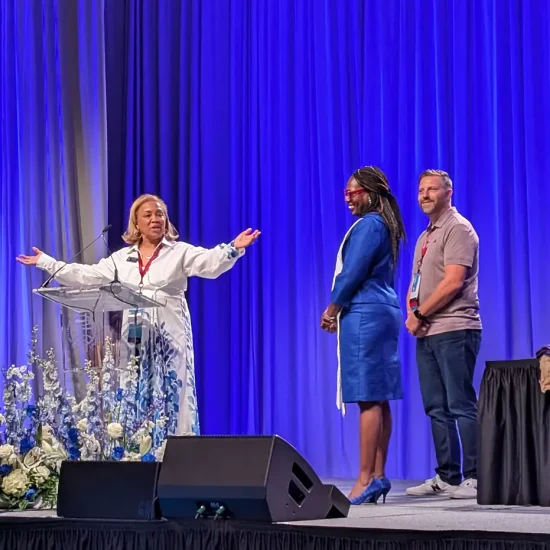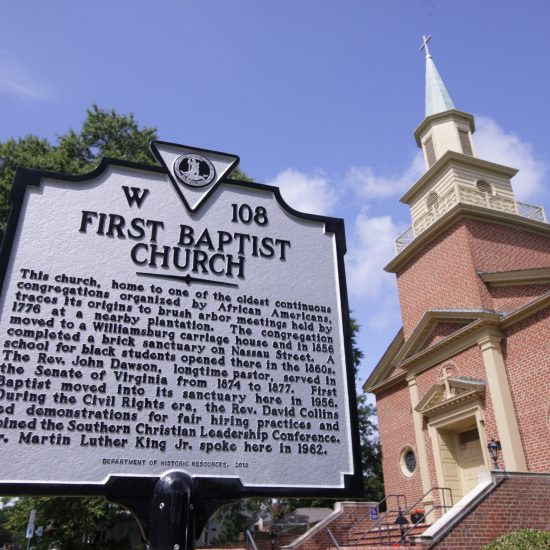LOUISVILLE, Ky. (ABP) – At its recent convocation in Louisville, Ky., the Alliance of Baptists not only adopted a statement on economic justice but implemented the commitment by equalizing salaries for members of the organization’s leadership team.
Denouncing public policy that benefits the richest Americans while neglecting protection and assistance to the poorest Americans, the April 30 statement noted that “our society remains wealthy, but the wealth is not shared equitably and fairly.”
It called for a “paradigm shift” in society demanding that governments at all levels “adopt public policy that supports all citizens not just the wealthy or powerful international corporations.”
Believing justice begins at home, the Alliance implemented salary equality among its own leadership team. Mary Andreolli, minister for outreach and communications; Carole Collins, director of finance; and Paula Dempsey, minister for partnership relations; will all be paid the same. A fourth team member, Chris Copeland, works as a contractor on a different pay scale.
“With salary equality among the leadership team we are sharing wealth equitably, and that commitment is one more step toward fully embracing our model for mission and ministry in the world – partnership,” Dempsey said.
The Alliance, formed in 1986 out of controversy in the Southern Baptist Convention, moved to a team leadership approach after Stan Hastey retired in 2009 after 20 years as its first executive director. After a period of financial struggles, the Alliance finished last year in the black. Dempsey said the organization has turned a corner and is now poised for growth.
“We have none of the encumbrances that mainline denominational bodies have — properties, programs or personnel — as holdovers from the past to maintain or sustain,” she said. “As an organization we are lean, and we are ready to respond to the unique challenges and changes facing the church in the world today.”
She described the Alliance’s approach to meeting needs as “to discern where the Spirit of God is at work in the world and to align our energies and efforts with that energy.”
“The denominational label doesn't matter,” Dempsey said.
An example is a summer project with young adults launched last year in full partnership with the United Church of Christ called Summer Communities of Service. This summer the Alliance plans to place young adults ages 19-30 in volunteer ministries in Charlotte, N.C.; New York City; Chicago; Wellspring, Va., and Back Bay Mission in Biloxi, Miss.
Another, Dempsey said, is response to disasters around the world. “We partner with and connect our congregations and individuals to Church World Service, the ecumenical disaster-response arm of the National Council of Churches.”
The statement on economic justice urges local, state and federal governments to:
— Raise the minimum wage to a living wage.
— Recognize the right of workers to organize for collective bargaining with employers regarding wages, benefits and working conditions.
— Address fiscal problems in a way that safeguards assistance for impoverished and hungry families.
— Protect and adequately fund programs that serve women and families — especially those struggling to overcome poverty — domestically and around the world.
— Exempt domestic anti-poverty programs and poverty-focused humanitarian and development aid from cuts and multi-year spending caps.
Alongside partners, the Alliance pledged “to raise our voices in advocacy for people living in poverty, for workers organizing for better wages, benefits and working conditions and for public and fiscal policies that support and protect anti-poverty programs.”
“The members of the leadership team of the Alliance are co-partners in leadership with our board and with God as we follow where the Spirit of God is leading us to be at work making a difference in the world,” Dempsey said.
“We are committed to an alternative understanding of power — that is power with, not power over which is coercive and dominating,” she said. “We realize this approach to power in organizational life is counter-cultural, but we believe it is the way the gospel is calling us to be the church in the world today.”
-30-
Bob Allen is managing editor of Associated Baptist Press.






